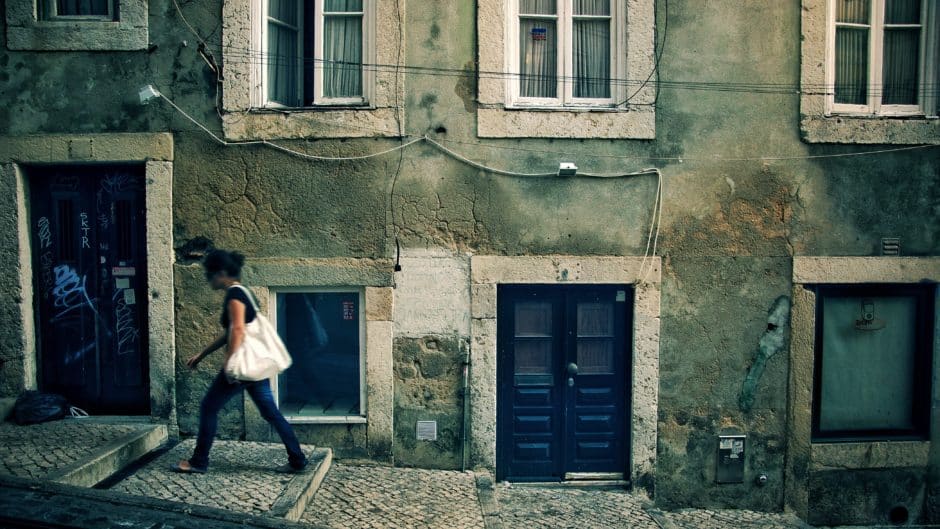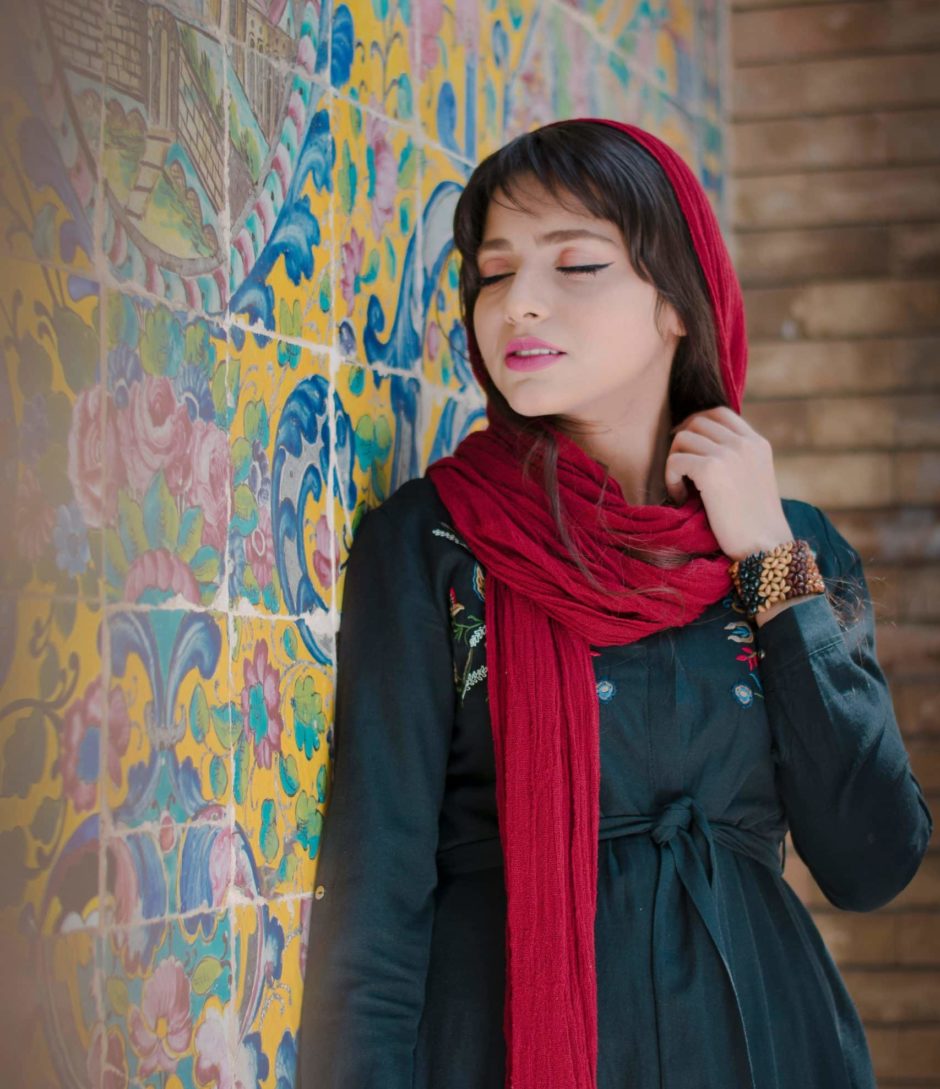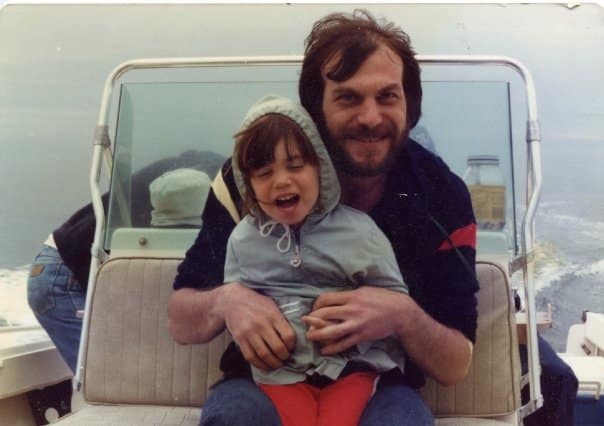By Bethany Petano
The automatic toilet flushes, mistaking projectile vomit for human movement. The backsplash hits me in the face. I vomit again at the thought of public toilet water mixed with my own throw up dripping down my cheek. Again, the backsplash hits me in the face. This continues until I am emptied. At the sink, I fill my hands with water and bring them to my face, scrubbing it dry with a paper towel, avoiding my reflection in the mirror.
Only six more hours before I can finally go home and crawl into bed. If I hadn’t already missed one class–I wouldn’t be here. The attendance policy for the Saturday Program at Bay Path College is severe. Missing two classes out of a six-week course means automatic failure.
Automatic failure–I was already one of those.
At least class gave me something to think about–besides overwhelming waves of nausea and the cramps gripping my abdomen in a steely vice. After my third sprint from classroom to bathroom, the women in my class exchange knowing looks.
“Does someone have a touch of morning sickness?”
Grinning faces blur as I blink back tears.
“Just a stomach bug,” I mumble. Pointedly turning my attention back to our professor.
A stomach bug I caught six weeks ago, on Valentine’s Day, one that I felt almost the instant it was created.
***
“You don’t look so good, Doll.”
My friend Amina is leaning against my cubicle partition ready to go on our mid-morning coffee break. We’ve been friends for years both in and outside of work.
“I don’t feel so great. Can’t keep anything down.”
“Ginger ale and saltines.”
“I know, I’m on it.” I lift my warm can of Canada Dry in a mock salute. “It’s super weird though, like–I can smell everything. It’s not helping.”
“Girl.”
“What?”
“I could smell everything the instant I was pregnant with Khi.”
“What?”
“You need to take a test.”
***
I call my primary care physician and make an appointment. In addition to measuring and weighing me, I am given a specimen cup to pee in. When the doctor enters the room she is beaming.
“Congratulations! You’re pregnant.”
I immediately burst into tears.
The doctor is visibly taken aback. This is not the response she expected.
“If that’s not necessarily good news, there are options we can discuss. Of course, we do not provide those services here.”
“Okay,” I manage to get out.
“I’ll give you a moment to get dressed.”
I cry the entire time I put my clothes back on. Finally, after countless deep breaths, I pull myself together. I do not stop at the desk to check out, leaving the practice without settling my co-pay.
Who the fuck congratulates an unmarried woman who isn’t trying to get pregnant?
***
The smell of eggs sends me running to the bathroom. Amina and I are at Friendly’s, explaining my situation to our buddy Johnny. His friend, Chris, is the partner-in-crime for my current predicament. We had only just started hooking up. Fucking for the first time after the Anti-Valentine’s Day Party I threw, and then again after a sub-par dinner date. At first, Johnny doesn’t understand the complexity of the situation, until Amina eludes I may not want to simply make this “problem” disappear.
Somehow, by violating the first rule of casual hook-ups (Don’t get pregnant!), we had reverted to a middle school era social construct with our appointed representatives negotiating the terms of our deal. Only this time, there is more at stake then holding hands during lunch.
Johnny contacts Chris, explaining the situation. It’s agreed, Chris and I will talk later that afternoon at Forest Park.
“Hey.”
“Hey.”
We start walking, shoulder to shoulder, not touching. The March air is brisk but small bursts of pale green signal signs of Spring.
“Why don’t you want to? We used a condom every other time for a reason.” He looks over at me.
“We didn’t use a condom on Valentine’s Day?” I ask, looking up.
“The first time. The second time you climbed on top of me and went for it. I just assumed you were on the pill,” he shrugs.
“I used to be. I don’t remember that. I just… Never thought… I would, you know?” I’m doing my best not to cry when I realize my feet have stopped moving.
“Do you not believe in it?” he asks, gently touching my shoulder.
“No, it’s not that.” I turn to face him. “I just always thought I would have kids someday.” I look past him, staring at nothing.
“Right, someday.” He ducks his head trying to catch my eye.
“But I’m twenty-eight…” I look him in the face.
“I’m only twenty-three. I’m not ready to have a kid.”
“I don’t know if I am either,” I admit softly, looking away.
But, what if this is my chance?
“So don’t,” he says softly.
The words hang between us. The meniscus of tears welling in my eyes finally spills over, falling down my cheeks. Chris pulls me into a hug. The wool of his grey pea coat scratches my face.
“I’m scared,” I mumble into his chest.
“I’ll be there with you,” he says, looking down at me.
There is a gentleness to the desperation screaming in his eyes.
“Can I think about it? We have time.”
“Of course.”
He keeps his arm around my shoulder as we walk back to our cars. This was not how I imagined this moment would go. Not how I imagined starting a family.
What if I had it anyway?
Would Chris help?
Would he hate me?
What would we tell the kid?
Could I do this alone?
Do I want to do this alone?
What does that even look like?
I don’t know.
I don’t know.
I don’t…
No.
“Okay,” I say when we reach the parking lot.
“Are you sure?” he asks.
“No.” My body releases a sob/shrug/laugh.
He wraps both arms around me. His embrace is warm but feels somehow wrong now.
I pull away.
“I guess I’ll call and make an appointment.” My eyes don’t quite meet his.
“I’ll pay for everything and go with you. If you want me to?” He touches my arm, leaning down, trying to make eye contact.
“Umm sure, okay, I’ll let you know when.” I turn, walking the rest of the way without him.
“Thank you,” he says emphatically, staring at me over the roof of my Honda Civic.
I can practically see the relief pouring off him.
I drive home. Not seeing the road through my tears. Not caring.
***
I think we will never talk again, but for months after, he checks in on me. The Facebook messages feel intrusive, but I understand his need to “do the right thing.” I don’t know what that looks like for me yet. It is awkward and uncomfortable to think about, so I put it all in a box and drown it with vodka.
I think about writing and sharing my experience. Maybe it will help others feel less alone. Maybe it will help me feel less alone. When I tell my mother, she cautions me, “Do you really want your father or grandfathers to know about that? I don’t.”
Shame wraps me in a heavy, black blanket, tucking the emotions I had almost processed back to bed. I made her a mother, as she birthed a daughter. Neither of us lives up to the other’s expectations.
At first glance, on the surface, you would not look at me and think of anything other than “pretty white girl.” Except maybe, loud-mouthed pretty white girl. That is a privilege I have become startlingly aware of recently.
Because my mother is blond and light-skinned, she has never been identified as a “spic.” A word she forbad us to use. I remember as a child having dinner at my father’s parent’s house. We were eating hot dogs and beans so it must have been a Saturday. I’m not sure how old I was, probably eight or nine. Gramps was on a racist rant about “spics and niggers.” Such comments were commonplace but on this occasion, I was paying attention. A realization hit me-I was probably a “spic.”
“What about me, and Mom, and Grama Gloria? Are we “spics,” too?”
The clattering of silverware ceases as silence fills the room and the adults look from one another communicating without speaking.
The silence is broken as my grandfather clears his voice, “Ahem, uh, you’re different,” he says ending the discussion.
That was the only explanation I received about my question of race. But, never again did I hear my grandfather speak that word. I sincerely doubt he stopped using racial slurs all together but he had at least developed a sensitivity as far as his granddaughter was concerned.
Identifying as Puerto Rican wasn’t something that ever occurred to me until filling out college application forms. It seemed logical that I checked the box next to Hispanic. And, even though, at the time, you weren’t allowed to check more than one box, I also checked the one next to white. I was both, wasn’t I?
When I came up with the phrase “Quarter Rican” to explain my racial identity my mother was horrified. At first, I thought this was because she equated the phrase to a racial slur. Then I found out–my mother only checks one box–white. Is that why she said nothing to her racist father-in-law?
Growing up my mother was teased by classmates–for her mother had an accent she didn’t hear. That doesn’t seem like a deep enough wound to deny one’s heritage. But, before I judge someone else’s trauma too quickly, I wonder, is that what my mother’s shame looks like? A tiny Puerto Rican lady I recall mostly through hazy memories of other people’s stories.
My shame–she takes many forms. She’s crafty like that. The day I told my mother I was pregnant drenched blue with shame. Even March in Connecticut couldn’t cool the red hot burning humiliation of also admitting I wasn’t quite sure who the father was. There were only two options but shame stood on the coffee table and screamed, “Whore!” I had no recollection. The night was a blackout. One of many. Disgrace filled me with darkness.
After he begged me, “please, don’t have this baby.” I again went to my mother and told her my news. My shame turned cold and gray. Like the sky on the March day he sat in the waiting area while I was counseled, poked, and prodded. I found it ironic the vaginal ultrasound wand looked exactly like a vibrator. Maybe I wouldn’t have ended up there if I’d just taken care of myself.
***
That was 2009, a decade before, “you know me,” would become a trending hashtag on Twitter. Hell, it was before most people even knew what a hashtag was. In May 2019, on her talk show “Busy Tonight,” host Busy Phillips shared facts and figures from a study published in the American Journal of Public Health. “The statistic is one in four women will have an abortion before age 45,” she said. “That statistic sometimes surprises people, and maybe you’re sitting there thinking, ‘I don’t know a woman who would have an abortion.’ Well, you know me.”
Phillips followed up her on-air insight with a social media post, creating the hashtag #YouKnowMe. The response was instant. Thousands of women shared their own abortion stories. Scrolling through Instagram, I came across Phillips’s post. The pinprick of tears surprised me. I was certain in the last ten years I had processed my feelings about my own abortion. It turned out I was wrong.
Reading post after post of women publicly sharing their stories cracked something open inside me. Tears streamed down my face. Shame can’t live in the light. Busy Phillips shined a bright hot light on abortion and women everywhere stepped into it. I tried to step into it too. Typing and re-typing my own post. Trying to find the right words that would eradicate my shame. I couldn’t find them. I hadn’t realized yet that inherited shame isn’t a gift you have to accept. There is, in fact, a return process for other people’s judgments—even from family. It starts with boundaries and it ends with the truth. I had failed to protect myself from unwanted pregnancy but I was not a failure. #YouKnowMe
Bethany Petano grew up and still resides in New England. Her work has been published in the literary journals Weatherbeaten and Meat for Tea. She has an M.F.A. in Creative Non-fiction from Bay Path University.
~~~~~~~~~~~~~~~~~~~~~~~~~~~

We love this book for so many reasons! The writing is incredible, the story is important, and seeing what life looks like when you survive the unthinkable is transformative. If you haven’t already, pick up a copy of Sanctuary, by Emily Rapp Black. Purchase at Bookshop.org or Amazon.
~~~~~~~~~~~~~~~~~~~~~~~~~~~
Anti-racist resources, because silence is not an option
~~~~~~~~~~~~~~~~~~~~~~~~~~~







